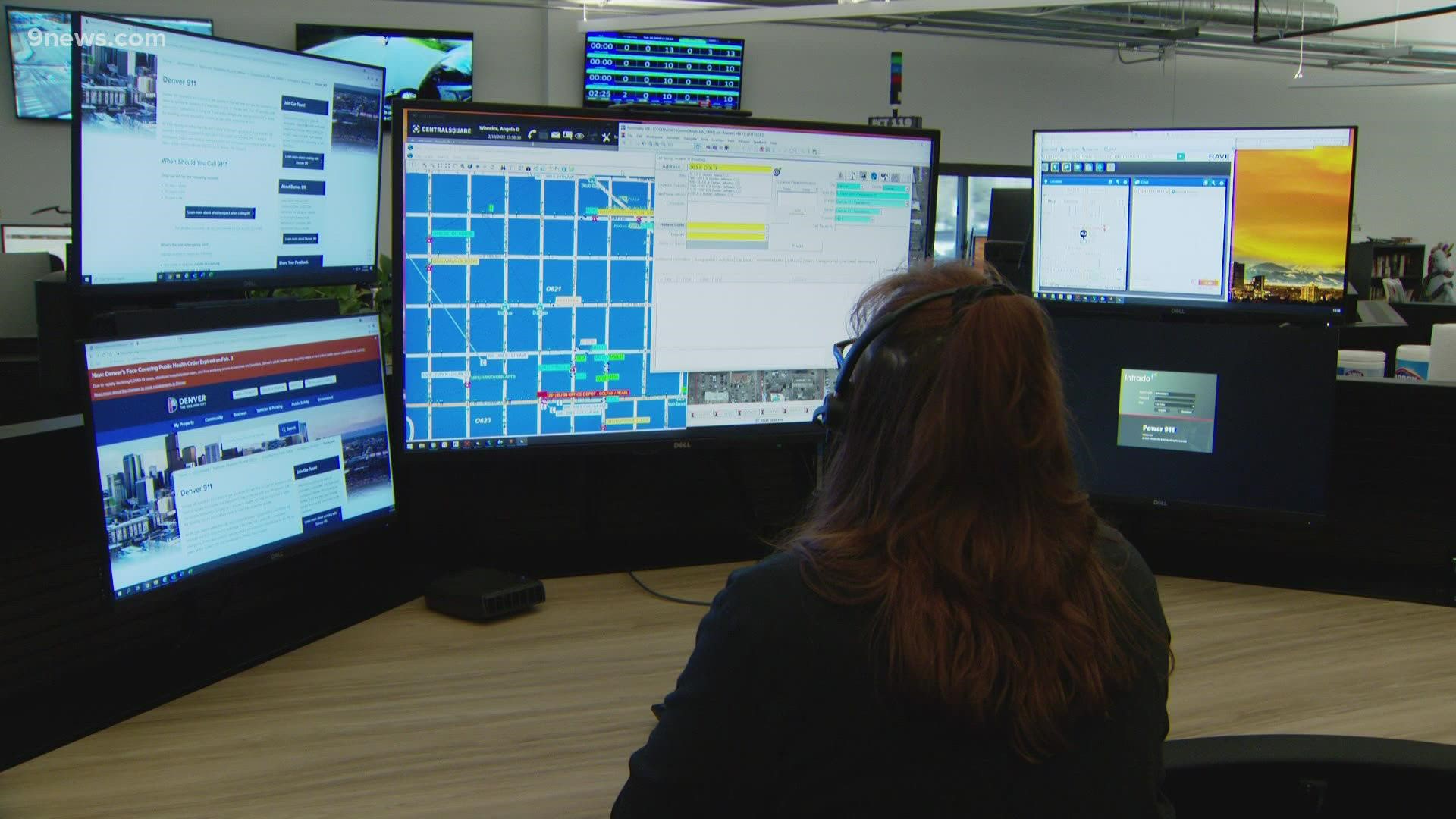DENVER — The city of Denver doesn't have enough people to answer 911 calls.
The reasons for dispatchers leaving are layered, but the list includes callers becoming increasingly nasty on the phone.
Aimee Lurie has worked as an emergency communications technician in Denver for five years. At the beginning of the COVID pandemic when people were told to stay home, she said people started calling 911 about their neighbors who were out socially distanced chatting or letting their kids play out in the streets.
She remembers one caller in particular.
"We did have one woman who liked to call us and tell us her neighbor went to Taco Bell a couple times during the week and during one particular day," she said.
But the deeper we got into the pandemic, the calls started taking a darker turn.
"There was an increase in harsh language, impatience," said Andrew Dameron, the director of emergency communications for Denver, who said callers have also used racial slurs.
Dispatchers started leaving in droves, to the point the dispatch center is at around half the staffing it ideally needs.
With violent crime up, dispatchers are taking more intense calls back to back.
The so-called "Great Resignation" took its toll, as well, with people leaving for different opportunities, more money or different lifestyles.
Then there's the fact that some dispatchers are tired of being yelled at, even with their training to take calls during someone's worst and most stressful moments.
This is having a serious impact.
"911 calls are sitting on hold before a call taker can get to them [from] time to time," said Dameron. "It's not something that should ever happen but unfortunately, it's the situation we are in right now."
It's not every call and sometimes the hold lasts for a few seconds, but it is happening on a daily basis, according to Dameron.
He said that's why some people are hearing a recorded call asking people to stay on the line.
"Across all industries, we're struggling to find a good outlet collectively," said Dameron. "It's not the fault of the people of Denver, it's the space we are in right now. The 911 folks are feeling it and have felt it."
In September, the city increased pay from $20.20 to $24 an hour, which helped with retention.
They're also bringing in service dogs, massage therapists and a fancier coffee machine.
The city is also streamlining recruiting process.
Dameron said it will take several academies to catch up on staffing since training is six months long.
"Dispatchers give them an intersection they can pinpoint it in their mind," he said. "It takes time to learn those skills."
Dameron said they are also interviewing for a work from home position that would help take in non-emergency calls.
The city is also working to expand their nurse line from a couple dozen calls a month to as much as 1,600 a month.
This line is for those who call in with a medical need that's not an emergency and can be transferred to a nurse. This nurse can help that caller, connecting them to the right resources instead of automatically calling in an ambulance and being taken to the emergency room.
Dameron said this could help people who don't have a primary care physician, and a lack of good insurance. He also said typically if there is a health care need, there are usually other needs too like food and housing and this line could help connect folks to those resources.

